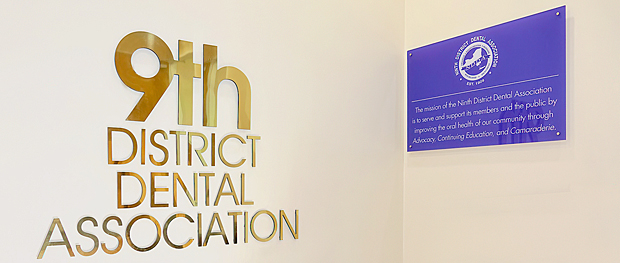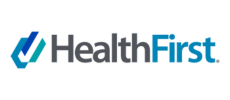NYSDOH Highlights National Minority Health Awareness Month
Per the notice below, the New York State Department of Health (NYSDOH) is highlighting National Minority Health Awareness Month.
New York State Department of Health Recognizes National Minority Health Awareness Month
Advancing Commitments to Eliminate Health Disparities Marks This Year's Theme
The New York State Department of Health recognizes National Minority Health Month with a commitment to advancing health equity and eliminating health disparities among communities of color. This year's theme, "Advancing Commitments to Eliminate Health Disparities," emphasizes the importance of proactively addressing inequities to eliminate health disparities and ensure those who have been historically prevented from achieving optimal health have a fair and just opportunity to do so.
"Health disparities are when different groups of people have different outcomes for the same problem. National Minority Health Month reminds all of us, communities of color continue to face inequities and disparities due to systemic racism and historical structural policies," State Health Commissioner Dr. James McDonald said. "This year's theme reflects our mission of eliminating health disparities and advancing health equity among all communities in this state."
The New York State Department of Health knows health equity is foundational to everything it does to help all people achieve optimal physical, mental, and social well-being. Everyone at the New York State Department of Health shares responsibility for achieving health equity and eliminating health disparities. The Department is hosting virtual panel presentations for National Minority Health Month, open to the public, intended to inform in the areas of racial and health equity, and historical and current challenges creating health inequities in accessing quality health care an effort utilized to dismantle health disparities.
- The Role of Data in Advancing the Elimination of Health Disparities
- Organizational Commitment to Racial and Health Equity
- Advancing Commitments to Eliminate Health Disparities
The Department has several programs and initiatives—including the following—to enhance the health of all New Yorkers, especially communities of color plagued by health inequities.
- The New York State Special Supplemental Nutrition Program for Women, Infants, and Children (WIC) provides breastfeeding support, nutrition education, referrals to other services, and nutritious foods to over 450,000 women, infants, and children each month. Participation in WIC is associated with healthier births, improved birth weights, reduced risk of infant mortality, and better access to primary and preventive health care, among other positive health outcomes. WIC welcomes parents and other caregivers, including grandparents and foster parents. Appointments are available in person or by phone. "Wanda," WIC's virtual assistant, is available in English and Spanish to help people learn about the WIC program and connect with a local office.
- The New York State Healthy Neighborhoods Program (HNP) seeks to reduce the burden of housing-related illness and injury through a holistic, healthy homes approach. The program provides in-home assessments and interventions for asthma, tobacco cessation, indoor air quality, lead, fire safety, and other environmental health hazards in selected communities throughout New York. These communities identify as high-risk using housing, health, and socio-economic indicators from census and surveillance data.
- The Diabetes Prevention Program (DPP) is an evidence-based, educational, and support program for individuals with prediabetes at risk for type 2 diabetes. The goal is to prevent or delay the development of type 2 diabetes. The Department also focuses on improving chronic disease health outcomes by using health information technology with quality improvement initiatives for individuals with high blood pressure, high cholesterol, diabetes, and other common conditions.
- The Community Cancer Prevention in Action (CPiA) is a Department program supporting local cancer prevention and risk reduction interventions using a policy, systems, and environmental (PSE) change approach. Free breast, cervical, and colorectal cancer screening is available for eligible, uninsured, and underinsured men and women through Cancer Services Program partnerships in every county and borough in New York State.
- The New York State Family Planning Program supports more than 150 clinic sites across the state to provide accessible, confidential family planning services to all, including low-income and uninsured individuals. Family Planning Programs provide low-cost, high-quality services such as pregnancy testing and options counseling, contraceptive methods (birth control), reproductive life planning and counseling, preconception health services, testing for HIV and other sexually transmitted infections, routine screening for breast and cervical cancer, health education, and referrals. Family planning clinics provide services in a way that does not discriminate against any client based on religion, race, color, national origin, disability, age, sex, sexual orientation, gender identity, sex characteristics, number of pregnancies, or marital status.
Recognizing that racism is a public health crisis, the Department is committed to making the State healthier for all New Yorkers, regardless of their race, ethnicity, age, disability, sexual orientation, gender identity, language access, immigration, or socio-economic status. In recent years, the Department has implemented many programs around maternal health to improve maternal health outcomes and to address the critical issue of pregnancy-related deaths among Black pregnant people. In addition, Governor Kathy Hochul signed a law creating a state doula directory, and since 2022 has allocated $4.5 million annually to support Regional Perinatal Centers to provide high- quality perinatal and infant care where needed and support other birthing facilities through clinical consultation, newborn transfers, provider education, and data and quality improvement, to improve maternal and infant health outcomes. The Department remains committed to advancing health equity for optimal health and well-being of all New Yorkers.












.png?sfvrsn=4447de7f_1)















